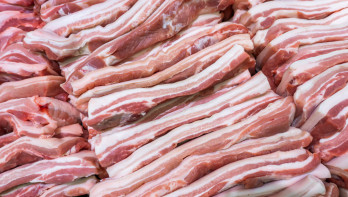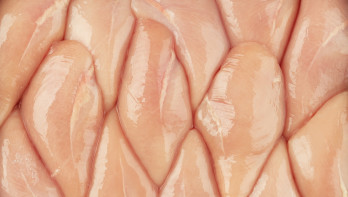Analysis Meat
Saudi Arabia focuses on South African beef
Despite a huge cattle population, South Africa is a relatively small player in the world market. Due to weak government supervision and constantly prevalent animal diseases, few countries dare to import meat from the country. However, Saudi Arabia sees opportunities in the market. The limited size of the halal market turns out to be an advantage.
At first glance, it is quite remarkable that Saudi Arabia allows imports from South Africa. In theory, South African exports have great potential. The most recent data shows that 80% of South Africa's agricultural land is used for extensive livestock farming. However, the age of this data is exemplary of one of the two major limiting factors of the African market. Namely, that due to the difficult political situation in the country, the government has relatively little control over the sector. The most recent data from the South African government on the African livestock sector comes from a report in 2015. The last official livestock count is even older, dating back to 2007. However, the United States Department of Agriculture (USDA) keeps track of figures on South African beef production. In 2023, production reached 1 million tons.
A second limitation is that South Africa is almost constantly plagued by animal diseases. In 2003, Saudi Arabia, like many other countries, decided to halt exports from the African country due to an outbreak of foot-and-mouth disease, and since then, the country has never been free of animal diseases. As a result, almost all major importing countries have closed their borders to South African meat. Unlike domestic agricultural data, South Africa does keep export statistics. It shows that in June, South Africa exported only 23,295 tons of beef. Before Saudi approval, this figure was considerably lower. In June 2023, South Africa exported only 15,330 tons of beef.
Halal proves to be an advantage
In this case, the fact that the Saudi market is limited to the halal market turns out to be an advantage for South Africa. Due to this restriction, only a relatively small part of South African exports is suitable, and Saudi Arabia can more easily supervise the sector in parallel with the authorities in the country. Since the beginning of this year, the Arab country has sent delegates to slaughterhouses and livestock farms and has so far concluded that the conditions at 12 companies meet Saudi requirements.
The risk of cross-contamination is not very high, according to the Arab country. This is due to a strong division in the South African market rooted in apartheid. The latest government report from 2015 on the South African livestock market shows that South Africa had about 13.6 million cattle. Approximately 50,000 commercial livestock farms (almost exclusively owned by white South African farmers) keep 7.8 million of these cattle. The remaining cattle were held at that time by roughly 3 million small-scale (often black) subsistence farmers. This is the crux. Animal diseases mainly occur among the subsistence farmers, making the commercial sector less vulnerable to infections.
Additionally, the halal sector in the predominantly Christian country is not very large and is entirely concentrated within the 50,000 large commercial farms. By granting admission only to large slaughterhouses working with this commercial sector, Saudi Arabia is able to conduct inspections within the country. This makes the relatively isolated market with little competition from other importers attractive.



